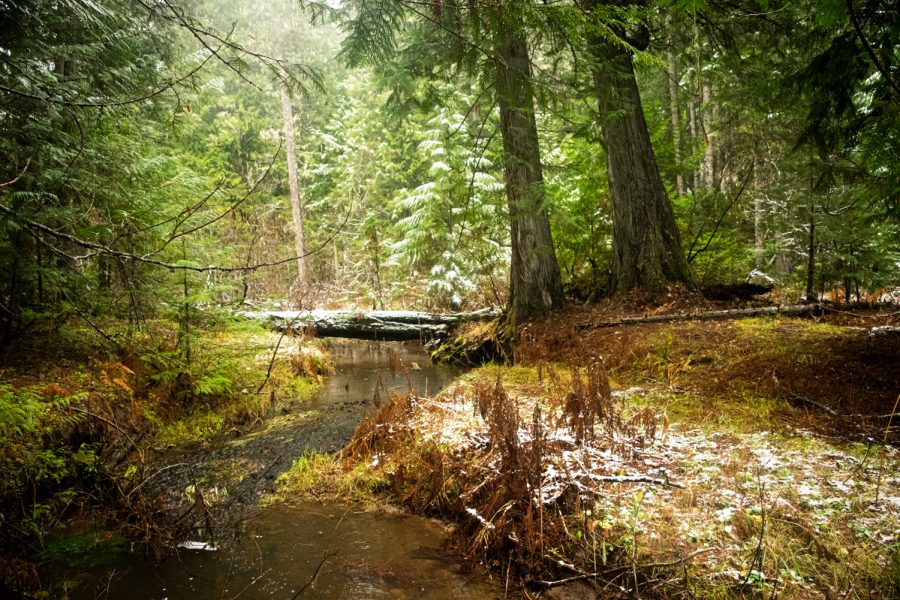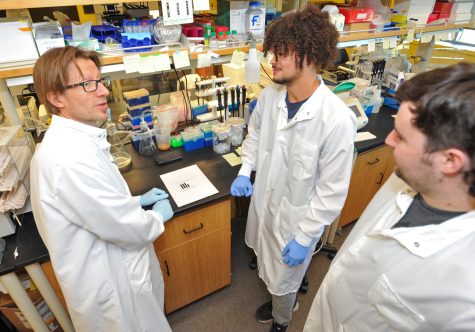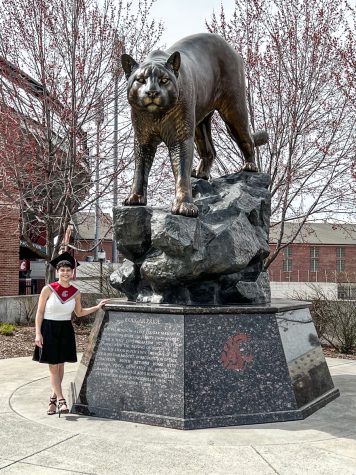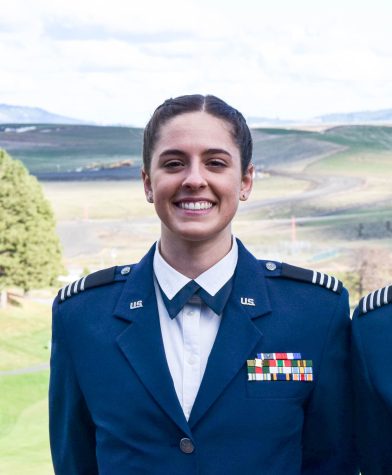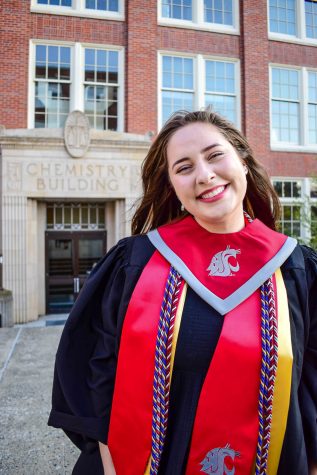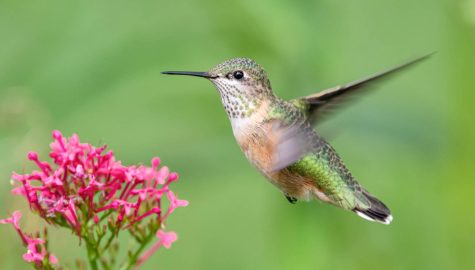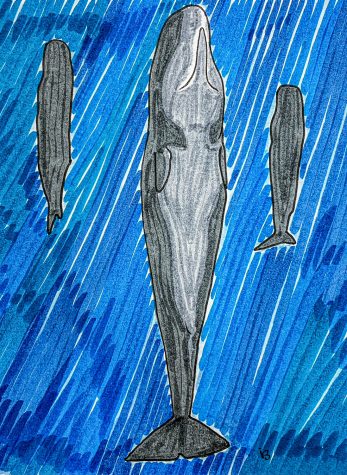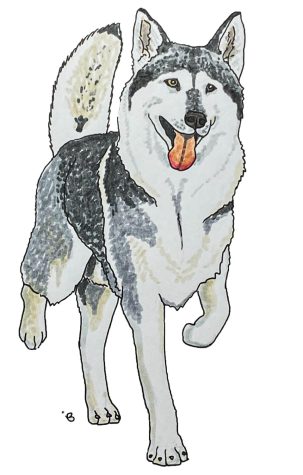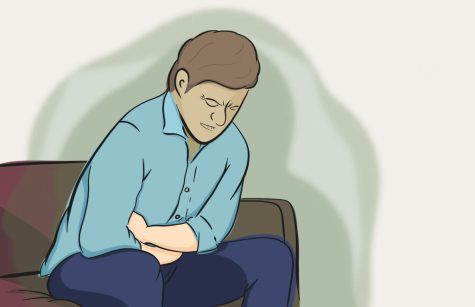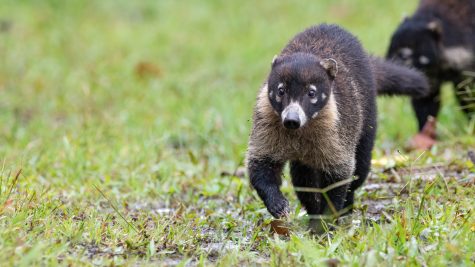If a tree falls, who will podcast about it?
prob info about the podcast
November 18, 2021
WSU Extension Foresters started a podcast to inform Pacific Northwest landowners and nature enthusiasts of forest care and management practices.
The podcast, titled Forest Overstory, primarily helps forest landowners meet their goals, including creating wildlife habitats, maintaining a healthy environment, promoting biodiversity and helping an area become climate resilient, said Sean Alexander, Northeastern regional extension forester and podcast host.
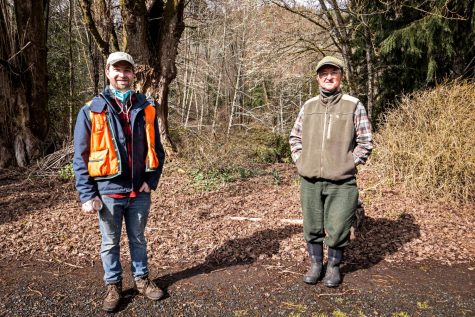
Alexander said he and other extension foresters have previously written journal articles, peer-reviewed papers and taught classes or workshops advocating for wildlife management. But he believed a podcast may be a new alternative to deliver important information and capture more attention.
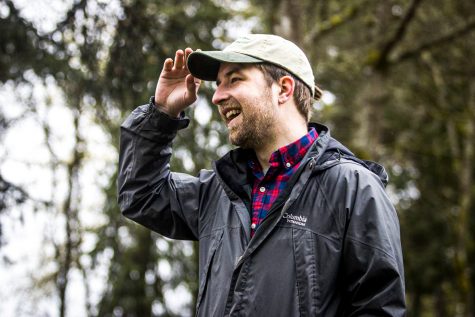
Patrick Shults, co-host of the Forest Overstory podcast, poses.
Universities tend to center around research and academia, he said. The goal of extension sites is to extend information, education and skills to the public.
Good information often comes from sitting down and getting to know people in an informal setting, said Patrick Shults, extension forester and podcast co-host. The idea behind the podcast is to share information in a more conversational tone.
“When you are listening in to people having a conversation you get to know the information a little more intimately, as opposed to a traditional classroom,” Shults said.
The goal is to interview people in the forestry field to discuss topics landowners may find interesting or useful, Alexander said. These include stories people may relate to or connect with while managing their forests.
“This podcast can shed light on a lot of different things,” Alexander said. “We can expand the audience to professionals in the field — people who work in forestry, in natural resource management, work in environmental practices or in environmental restoration.”
Two episodes have aired so far: a landscape ecologist discussed modern wildfire implications and a wildfire biologist talked about promoting habitat diversity and management. The next episode will include two female landowners sharing their perspective of their family-owning land, he said.
The podcast airs monthly, but Shults said it might air twice a month as their audience grows.
Their primary target audience is small forest landowners who are nonindustrial, Alexander said. However, the podcast can be useful to anybody interested in forestry or possibly managing land.
For those who are not natural resource professionals or do not own land, the podcast will also cover a number of other topics, including how to create healthier forests, promote growth and recreation, he said.
Owning land also has a hard history, he said. Buying land is expensive and many who own private land are either wealthy or inherited it.
Shults said it is important to make land available to people who are not wealthy or have connections to receive land.
“That is something we want to promote with this podcast: increasing the diversity of people who own forest land,” Alexander said.
Many other relevant issues and topics will be addressed in the podcast, including climate change and devastating wildfires, he said.
“Wildfire resiliency is the greatest issue we face today,” he said. “We’ve seen a massive increase in both the extent and size of the fires, as well as the pace and severity … more and more of the landowners that I work with are impacted by that.”
Fifteen percent of Washington state forest land is owned by private landowners. This means they have a higher risk of losing everything when wildfires come through, Alexander said.
It will also be important to address historical aspects of land, including Native American history and their use of fire, as well as understanding historical models. Looking at the history of land ownership will help create a better future, he said.
“We want to have a conversation about the history of [wildfires], and we want to look at the factors that are involved in what is leading to the issues we see now,” Alexander said. “Then look toward the future to discuss how landowners can become resilient to this.”
Small forest owners are also at risk of converting their forest land to nonforest uses, like subdivisions or Walmarts, Shults said.
“We don’t want this to happen. We want people to be attached to their forests,” he said. “We want to give them all the tools to keep those forests in their family and pass them down for generations.”
The podcast started earlier this fall after receiving a grant from the Society of American Foresters, Shults said.
He said the topics the podcast is covering right now are fairly broad, but it will break off into smaller subtopics over time.
“We’d love to do a podcast on pollinators,” Shults said. “But we’re always going to relate it back to forests and forest management.”
The podcast will also share new research, management methods, new resources and groups to connect with, he said.
“Forests are really beautiful places and are a great place to retreat from the world … they are worth protecting,” Shults said. “They provide a lot of services to society and are certainly facing more challenges than ever.”
The podcast can be heard on its official website, Soundcloud, Spotify, Apple Podcasts and wherever podcasts are also available.
Editor’s Note: This article has been updated to correct information about the podcast’s previous episodes.

